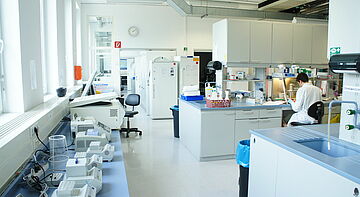Read the full story here.
The dormant egg: scientists bring the ‘sleep mode’ of egg ribosomes to light



The website uses cookies to ensure you get the best experience on our website.
Anonymous evaluation for troubleshooting and further development
Purpose: error analysis, statistical evaluation of our website accesses, campaign analysis, conversion tracking, retargeting
Processing operations: Collection of access data, data from your browser and data about the content accessed; Execution of analysis software and storage of data on your terminal device, anonymization of the data collected; Evaluation of the anonymous data in the form of statistics
Storage period: data on your device for up to two years.
Joint controller: Google Ireland Limited, Gordon House, Barrow Street, Dublin 4, Ireland Legal basis for data processing: voluntary, consent that can be revoked at any time Consequences of non-consent: No direct impact on the functionality of the website; however limited opportunities for further development and error analysis
Data transfer to the USA: Your data is processed by the provider Google in the USA, which involves corresponding risks, e.g. B. a secret data access by US authorities. With your consent, you also consent to the processing of your data in the USA.